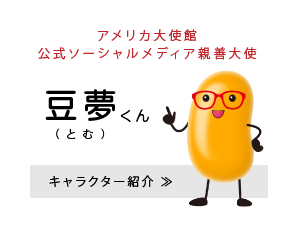国務省出版物
女性実力者の系譜-世界を広げる
米国の歴史を通じて、女性たちは、投票権、教育の機会均等、そして有給の仕事など、ほとんどの男性にとっては当然のことだった権利と機会を獲得するために長年努力をしてきた。
植民地時代にまでさかのぼると、当時は女性が正式に教育を受けることに反対されるのがふつうだった。しかし1821年に、エマ・ハート・ウィラードが、ニューヨーク州トロイの市民たちから資金を得て、全米初の女性のための神学校、トロイ女子神学校を設立した。同校は、現在なら大学レベルと見なされる科学、数学、文学、そして歴史の講座を提供した。1833年には、男女共学のオーバリン大学が開校し、初めて女性に高等教育の学位を提供する学校となった。1861年には、初めての私立リベラルアーツ女子大学としてバッサー大学が設立された。19世紀後半に入ると、他の共学の大学にも女性が入学するようになった。
しかしながら、20世紀に入ってかなりたってからも、政府・政治だけでなく多くの分野が女性に対しておおむね閉じられていた。物理学者のロサリン・ヤロウや最高裁判事のサンドラ・デイ・オコナーのような傑出した女性たちでさえも、少なくとも最初は、科学・法律・数学など「男性的」とされていた分野で大学に入学したり、自分の能力と教育に見合った仕事に就いたりすることが難しかった。
しかし、それでも意欲的な女性たちが、野心と理想を追求するために教育面でのハードルなどの障害を乗り越えていった。20世紀には女性たちが着実に労働力として進出し、それまで女性には閉じられていた職業で優れた能力を発揮している。今も格差は残っているが、多くの分野で女性は著しい進歩を遂げた。こうした進展を示す米国国勢調査局のデータが2つある。まず教育の分野で、2005学年度に発行される予定の学士号の59%、修士号の60%が女性に対するものと予想されている。また、2002年には女性起業家が社長である会社の収益が総額9408億ドルとなった。
ここで取り上げる女性たちは、過去150年間に開拓者、達成者となってきた多くの女性のごく一部である。こうした女性たちは、社会を変えること、そして自らの才能を最大限発揮することを強く願っていた。彼女らは、権力に対して立ち上がる勇気と、必要ならば論争も受けて立つ勇気を持っていた。そして、その過程で、それぞれの地域社会、国家、また世界を社会的・経済的・科学的・文化的に豊かにすることに大きく貢献した。
*上記の日本語文書は参考のための仮翻訳で、正文は英文です。
Expanding Horizons - Women of Influence
U.S. women pioneer in more fields of endeavor
Over the course of American history, women have dedicated many years to achieving rights and gaining opportunities most men had taken for granted, from the right to vote to equal access to an education and a paying job.
Going back to Colonial times, widespread opposition to the formal education of women was the norm. But in 1821, Emma Hart Willard succeeded in getting funding from the citizens of Troy, New York, to found the Troy Female Seminary, the first of its kind in the country. It offered what now would be considered college-level courses in science, mathematics, literature, and history. In 1833, Oberlin College opened as a coeducational institution, the first school to grant higher-education degrees to women. In 1861, Vassar was founded as the first private women's liberal arts college. In the second half of the 19th century, women began to gain admission to other coeducational colleges and universities.
Many fields, not just government and politics, remained largely closed to women well into the 20th century, however. Outstanding individuals like physicist Rosalyn Yalow and Supreme Court Justice Sandra Day O'Connor still found it difficult, at least initially, to gain admission to most universities in disciplines considered "masculine" provinces – science, law, mathematics – or to get a job commensurate with their abilities and training.
Nevertheless, determined women overcame educational hurdles and other obstacles in pursuit of their ambitions and ideals. In the 20th century, they steadily joined the labor force, excelling in professions previously considered out of bounds to their sex. Disparities remain, but women's progress in many areas has been remarkable. Two statistics from the last U.S. Census Bureau illustrate this development. In education, women were expected to earn 59 percent of the bachelor's and 60 percent of the master's degrees awarded for the school year 2005-06. Businesses headed by female entrepreneurs had receipts of $940.8 billion in 2002.
The women featured in this section are just a few among the many pioneers and achievers of the past 150 years. They have been eager to make a difference, to employ their talents to the fullest. They have had the courage to stand up to authority when necessary, or to face controversy. And, in the process, they have made great contributions to the social, economic, scientific, and cultural wealth of their communities, their country, and the world.
For additional information, see:
American Women: A Library of Congress Guide for the Study of Women's History and Culture in the United States. Washington, D.C.: Library of Congress, 2001.
http://lcweb2.loc.gov/ammem/naw/nawshome.html




